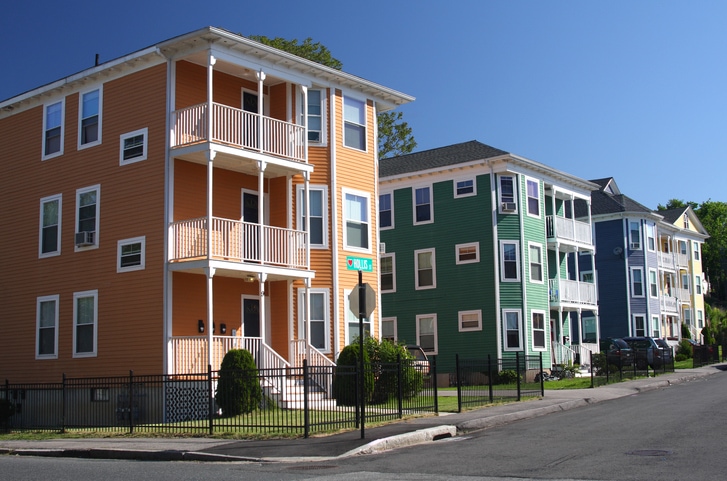Why Selling a Home in Massachusetts Can Be a Golden Opportunity
Massachusetts is one of the most attractive states in the country when it comes to real estate. From charming colonial homes in the suburbs to waterfront properties in Cape Cod, the Bay State has a wide variety of options that appeal to buyers from all walks of life. But if you’re planning to sell your home, you’re probably wondering: how can you make sure you get the best offer?
Getting a great offer isn’t just about listing your property and waiting. It’s about strategy, timing, and understanding the local market. Massachusetts has its quirks—seasonal trends, high property taxes, historic neighborhoods—and those can work in your favor if you know how to play the game.

Understand the Massachusetts Housing Market
Before setting a price or calling a real estate agent, it’s essential to get a solid grasp of your local market. Massachusetts home prices can vary significantly depending on the city or town. Boston, Cambridge, and Brookline tend to be more expensive, while areas in Western Massachusetts might be more modest in pricing.
Here’s a quick breakdown of average home sale prices across different regions in the state:
| Region | Average Sale Price |
|---|---|
| Boston Metro Area | $775,000 |
| Worcester County | $430,000 |
| Berkshire County | $380,000 |
| Cape Cod | $635,000 |
These numbers shift constantly, so it’s smart to check current listings in your area and consider getting a home appraisal before setting your price.
Simple Steps to Attract Competitive Offers
There’s a lot you can do to make your property stand out—and the best part is, not all of it requires spending a fortune. Here are a few proven steps to help you generate strong interest and possibly multiple offers:
- Stage Your Home: Clean, declutter, and decorate. Buyers should be able to imagine living in the space.
- Professional Photos: Good lighting and angles can make a world of difference in your listing.
- Price It Right: Overpricing scares off buyers. Aim for a competitive price that attracts attention.
- Fix Minor Issues: Leaky faucets, peeling paint, or squeaky doors can leave a bad impression.
- Highlight Unique Features: Whether it’s a backyard patio or a walkable location, make it known.
These efforts often lead to a quicker sale and more aggressive offers, especially in high-demand areas like Greater Boston.
Should You Use a Realtor or Sell It Yourself?
Many Massachusetts homeowners debate whether to hire a real estate agent or go the “For Sale By Owner” route. Both approaches have their pros and cons.
| Option | Pros | Cons |
|---|---|---|
| Using a Realtor | Market expertise, access to MLS, negotiation help | Agent commissions (typically 5-6%) |
| Selling By Owner | No commission fees, full control | More time-consuming, limited exposure, harder negotiations |
If you’re comfortable handling contracts, marketing, and open houses, selling by owner may save you money. But if you want less stress and more professional help, a realtor may be worth the cost.
What Massachusetts Buyers Look for Most
Knowing what buyers are actively searching for in Massachusetts can help you tailor your selling strategy. While preferences vary, a few trends are consistent:
- Energy Efficiency: Homes with solar panels, insulation, and updated windows often fetch better offers.
- Home Offices: Remote work is still a thing—many buyers want a dedicated workspace.
- Outdoor Space: A backyard, deck, or balcony adds major appeal, especially in urban areas.
- Updated Kitchens and Bathrooms: Even modest renovations can lead to better returns.
- Proximity to Public Transit: In metro areas, being near a T stop is a major plus.
If your home has any of these features, be sure to highlight them prominently in your listing.
Timing Your Sale for the Massachusetts Market
Believe it or not, the time of year you list your house can dramatically affect the offers you receive. In Massachusetts, real estate is often seasonal.
- Spring: The hottest season for sales, with families looking to move before the new school year.
- Summer: Still active, but competition begins to level off.
- Fall: Fewer buyers, but those who remain tend to be serious.
- Winter: Slowest season, but sometimes a good time for quicker sales due to low inventory.
If you’re aiming for a fast and profitable sale, listing in late March or early April is usually your best bet.
How to Respond When You Receive an Offer
Once the offers start rolling in, it’s time to evaluate—not just on price, but on other important terms. A higher offer with weak financing might not be as good as a slightly lower one with cash in hand. Here are key factors to review:
- Purchase Price: Obviously important, but not the only thing to consider.
- Contingencies: Fewer contingencies usually mean a smoother sale.
- Closing Date: Does the buyer’s timeline match yours?
- Earnest Money Deposit: A strong deposit shows serious intent.
- Loan Type: Cash buyers can close faster, while FHA or VA loans may require additional inspections.
Work with your realtor (or a real estate attorney if you’re selling solo) to counter, accept, or reject offers based on your goals.
Conclusion
Selling a house in Massachusetts doesn’t have to be complicated. With the right strategy, clear presentation, and a little patience, you can attract strong offers and close with confidence. Start by understanding your local market, then make your property shine—online and in person. Whether you choose to go with a realtor or take the reins yourself, stay informed and trust your instincts. Massachusetts has a lot to offer, and so does your home. With the right approach, you’ll be well on your way to securing a sale that truly reflects its value.